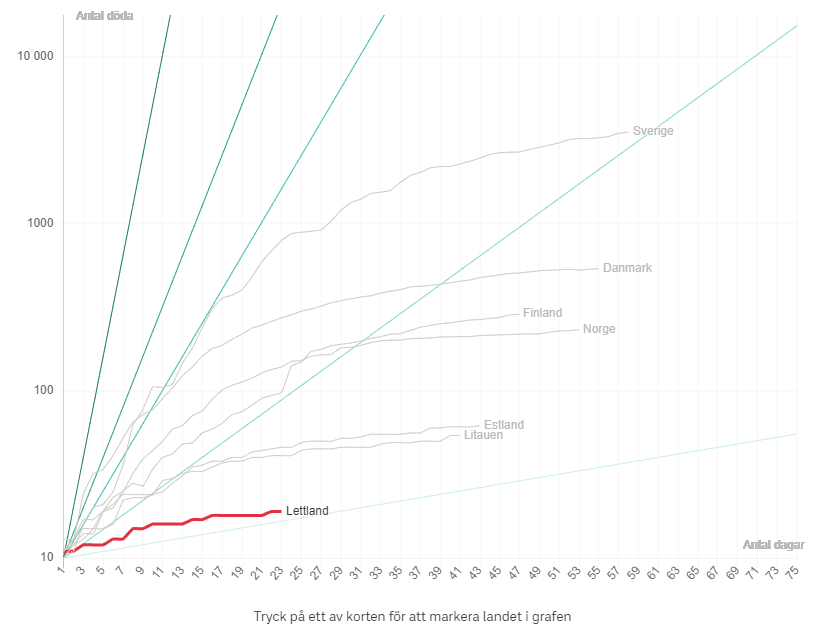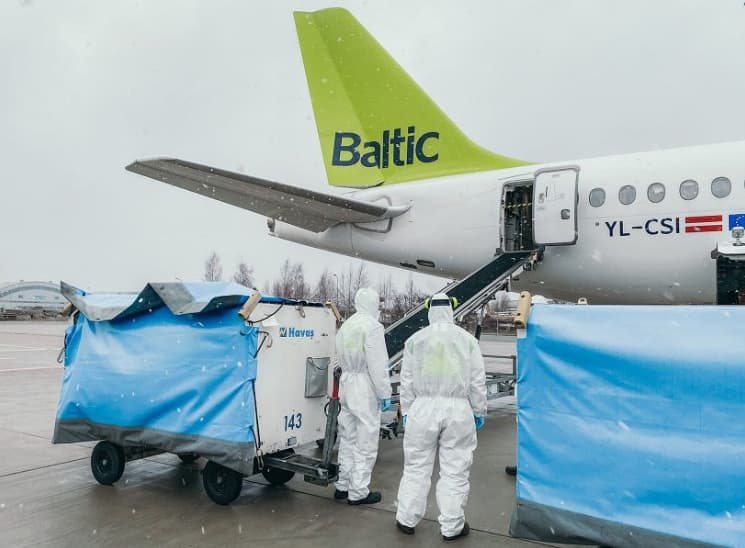Latvia, a not particularly wealthy Northern European country, appears to be one of the coronavirus pandemic’s success stories. As of 15 May, Latvia has confirmed only 970 cases and 19 deaths. By contrast, neighbouring Estonia has recorded double the number of cases and three times as many deaths.
One of Latvia’s government top advisors, infectious disease expert, Uga Dumpis says Latvia’s carefully calibrated response is “one of the freest in Europe.” He is, however, critical of the no-lockdown response in Sweden, where schools remain open, social distancing is recommended rather than mandated, and 3,529 people have died (data on 15 May).

According to Dumpis, the government’s containment measures have received a high degree of public support. He hopes that the coronavirus will compel the country’s leaders to invest more money in the cash-strapped health care system. “Last year Latvia spent 4 percent of its GDP on health care,” he said. By contrast, in 2018 Estonia and Lithuania spent 5.1 percent and 5.9 respectively.
Along with the public support for the government’s response, the pandemic seems to have helped bring the country together. The two most prominent experts on the pandemic, Dumpis and Jurijs Perevoščikovs, happen to be from different sides of Latvia’s ethnic divide. Dumpis is an ethnic Latvian, while Perevoščikovs is a member of the country’s Russian-speaking minority.
Having representatives of both communities as the public face of the government’s COVID-19 response is “an unexpected side effect of the pandemic,” says Krišjānis Kariņš, the country’s prime minister. “The virus doesn’t treat people by their level of income or ethnicity.”
It remains to be seen if Latvia continues to keep its COVID-19 number down and the Latvians keep exercising self-restraint. “We are dealing with human behaviour here, not mathematical modules,” says Uga Dumpis.
FOREIGN POLICY: Facing Pandemic, Latvia Follows the Lead of Its Experts
The two top medical experts in Latvia come from different ethnic groups, and their regular appearances have helped bridge a historical divide in the country. https://t.co/xRIHtJe9CA
— Foreign Policy (@ForeignPolicy) May 15, 2020



